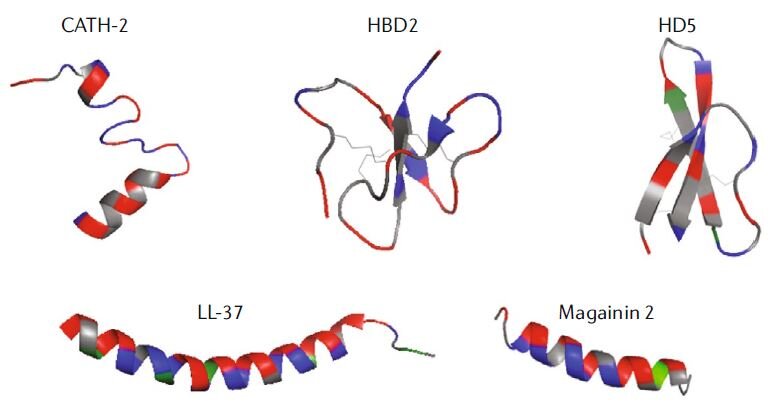The February 27, 2020, issue of Nature Reviews Drug Discovery contains a comprehensive review article, excerpted below, highlighting emerging potential clinical applications of Cationic Host Defense Peptides (CHDPs), also referred to as Antimicrobial Peptides (AMPs), and their synthetic mimetics, like Brilacidin.
Increasingly at the cutting-edge of medicine, attracting considerable attention among both Pharma and Academia alike, CHDPs exhibit a number of distinct and highly favorable therapeutic characteristics—anti-bacterial, anti-inflammatory, anti-fungal, anti-biofilm, anti-cancer, and antiviral.
Brilacidin, the Company’s defensin-mimetic drug candidate, has demonstrated broad and robust antibacterial, anti-inflammatory and immunomodulatory properties in multiple FDA clinical trials, and is currently being evaluated as a potential novel coronavirus (COVID-19) treatment. Click here to learn more.
For additional background reading on the antiviral properties of CHDPs, and their potential to be developed into antiviral therapeutic agents, please refer to the 2019 research article linked below:
Brice, DC, and Diamond, G. “Antiviral Activities of Human Host Defense Peptides.” Curr Med Chem. 2019 Aug 5. doi: 10.2174/0929867326666190805151654. [Epub ahead of print]
“the wide range of CHDP functions defined to date provide a diverse range of natural molecules for the design and optimization of new drugs [...] the potential of CHDP-based therapies remains a promising new clinical direction”
Mookherjee, N, et al. “Antimicrobial Host Defence Peptides: Functions and Clinical Potential.” Nat Rev Drug Discov. 2020 Feb 27. doi: 10.1038/s41573-019-0058-8. [Epub ahead of print]








![Mookherjee, N, et al. “Antimicrobial Host Defence Peptides: Functions and Clinical Potential.” Nat Rev Drug Discov. 2020 Feb 27. doi: 10.1038/s41573-019-0058-8. [Epub ahead of print]](https://images.squarespace-cdn.com/content/v1/5715352e20c647639137f992/1583547189268-RKVPJ1DOISGYYUP9G5IU/BRI+HDP+rvw+article+antiviral.JPG)